Can Red Meat Cause Cancer
Can red meat cause cancer, let’s find out. There is a lot of debate around the world about whether red meat causes cancer.
Most of the evidence points to no. But what do reputable sources say about it? And what do you think?
Red meat contains many health-promoting nutrients, but the amount of red meat in a person’s diet can be a health risk.
We all know that red meat is high in protein and is excellent for building muscle, but what about its effect on cancer?
The World Health Organization has said that processed meats are carcinogenic and red meat “probably” is too.
In the latest installment of the “Red Meat and Cancer” series, we’ll first look at the evidence for red meat causes cancer.
Can red meat cause cancer?
Nitrates and nitrites are major compounds found in processed red meat, such as beef, lamb, and pork, and when consumed in an excessive amount over a long period, the nitrites are converted into cancer-causing chemicals (N-nitroso compounds or NOCs) by the body, these compounds increase the risk of cancer more according to experts.
Experts have also classified red meat and processed meat as probable causes of cancer when consumed in high amounts.
A study out of Oxford University found that red meat consumption is linked to a higher risk of death from cancer.
A study commissioned by the International Agency for Research on Cancer (IARC) found that red meat is “probably carcinogenic to humans.”
This study is important because it shows evidence of the links between red meat and cancer.
The World Cancer Research Fund has identified red meat as a probable cause of cancer.
The International Agency for Research on Cancer (IARC) has classified the consumption of red meat as “probably carcinogenic to humans”.
Therefore, eating a little red meat is great for the heart, but eating too much red meat causes cancer.
The theory that red meat may have carcinogenic properties and increase the risk of colorectal cancer is not new.
In 1978, a Swedish study found that people who ate a lot of meat had a higher rate of colorectal cancer.
In 1982, a study found that there was a link between the risk of colon cancer and the number of meat people ate.
Red meat is often considered a high-risk factor for cancer because it contains high levels of heme, which is a form of iron that can lead to increased production of free radicals, which can lead to cancer.
Some research has even shown that people who eat a lot of processed meats like hot dogs and bacon, as well as red meat, have a higher risk of colorectal cancer.
It’s recommended that people who eat more than 100g (cooked weight) of red and processed meat a day cut down to 60g or less. This could help reduce your risk of bowel cancer.
A little red meat is great for the heart but eating too much causes cancer. Let’s look at red meat.
According to Healthline, eating red meat regularly probably increases your risk for colorectal cancer.
Red Meat: The Basics
Red meat is the term given to beef, pork, lamb, and also bacon, and salami. Red meat is cooked in the same way as white meat, but the ‘red’ stuff is typically tougher.
The term is generally used in reference to red meat. Some people use a wider term, called ‘red meats’ which also includes veal, game, and processed meat like sausages, ham, and pastrami.
Red meat is higher in protein than white meat, and this is one of the key reasons why red meat is so important for an active lifestyle.
This is because red meat contains all the essential amino acids our bodies need to make muscle tissue, and proteins are the building blocks of life.
According to the NHS, each one of us needs a minimum of 60 grams of protein a day.
What is red meat?
To be called red meat, the meat is not quite red. That name is reserved for animals with red coats or hair and anything that comes from cows, sheep, or goats.
But most meat in the United States today is from chickens, cows, and pigs.
Red meat can cause cancer hormones in the body through one hormone that scientists are increasingly focused on is called IGF-1.
It is an important growth factor that stimulates cell growth. It also decreases cell death.
Studies have shown that in the higher quantities found in red meat and fast food, this hormone can encourage the formation of cancer-causing mutations.
The insulin, leptin, and growth hormone secreted in meat affect insulin resistance, which can in turn lead to metabolic syndrome.
What is the difference between processed and unprocessed red meat?
The United States Department of Agriculture (USDA) maintains a list of foods that fall into the category of “red meats”, like beef, pork, and lamb.
Their website lists other substances that can be found in red meat, like the matter found in blood, buttermilk, milk, and eggs. However, only 0.8 percent of total red meat comprises gelatin.
Processed meat
What is considered “processed meat” includes processed ham, sausages, beef jerky, pork rinds, hot dogs, and bacon?
These products were processed, in order to increase the shelf life, so the meat can be transported.
TNT has taken it one step further, describing “red meat, such as beef, pork, or lamb, that has been preserved, cut, cooked, or processed in any way.
How does red meat cause cancer?
Basically, red meat is a type of meat that comes from the muscle tissue of cows, pigs, and sheep.
In other words, the red meat that you can find in a package from the meat store, if any, is muscle meat.
Most people think of red meat as unhealthy and meat-eating is bad for your health.
But what about red meat that is from other animals like beef from the cow, turkey from the turkey, or lamb from the sheep?
This “raw” red meat contains two types of cancer-causing agents:
Tylosin and Myoglobin.
Tylosin is an antimicrobial agent that kills harmful bacteria and prevents the growth of disease-causing microbes.
This antimicrobial agent is a highly poisonous compound that comes from meat.
Myoglobin is a red, heavy-metallic pigment found in the muscle tissue of some animals.
So when you consume too much red meat, your body finds it difficult to deal with these two cancer agents which will definitely lead to cancer.
Other chemicals that can cause cancer found in red meat
Nitrates and nitrites
These compounds are used to keep processed meat fresher for longer, nitrites can be converted into cancer-causing chemicals (N-nitroso compounds or NOCs).
These chemicals found mostly in red meat may be the reason why processed meat increases the risk of cancer more than fresh red meat.
Heterocyclic amines (HCAs) and polycyclic amines (PCAs)
These two chemicals are known to be produced when meat is cooked at high temperatures, for example, meat grilling or barbecuing.
Both compounds have been heavily linked, to causing damage to cells in the bowel during consumption.
The Haem
This is generally known as the red pigment that is naturally found in red meat and processed red meat.
It can damage cells, and cause bacteria in the body to produce harmful chemicals. This can increase the risk of cancer.
How much red meat should I eat?
Dr. Clare Morrison, a physician, and registered dietitian at Mayo Clinic recommends eating red meat once or twice a week and aiming for more of the darker, more marbled cuts.
“The darker the steak, the higher the cancer risk,” she says. This is because the higher-quality red meat is, the typically longer it cooks, so the body has less time to break down it.
What do other websites say about Red Meat and cancer?
According to NSH, Red meat – such as beef, lamb, and pork – is a good source of protein, vitamins, and minerals, and can form part of a balanced diet. But eating a lot of red and processed meat increases your risk of bowel (colorectal) cancer.
According to Health Essentials from Cleveland Clinic, “Scientific evidence has been accumulating for decades that colon cancer is more common among people who eat the reddest meat and processed meat.”
More on meat:
- What Meat Has The Most Iron? No1 Best Meat Source of Iron.
- 12 Best Protein Equivalent To Eggs You Should Know.
- Can Red Meat Cause Constipation: What You Should Know.
- 12 Reasons Why Can Animals Eat Raw Meat & We Can’t

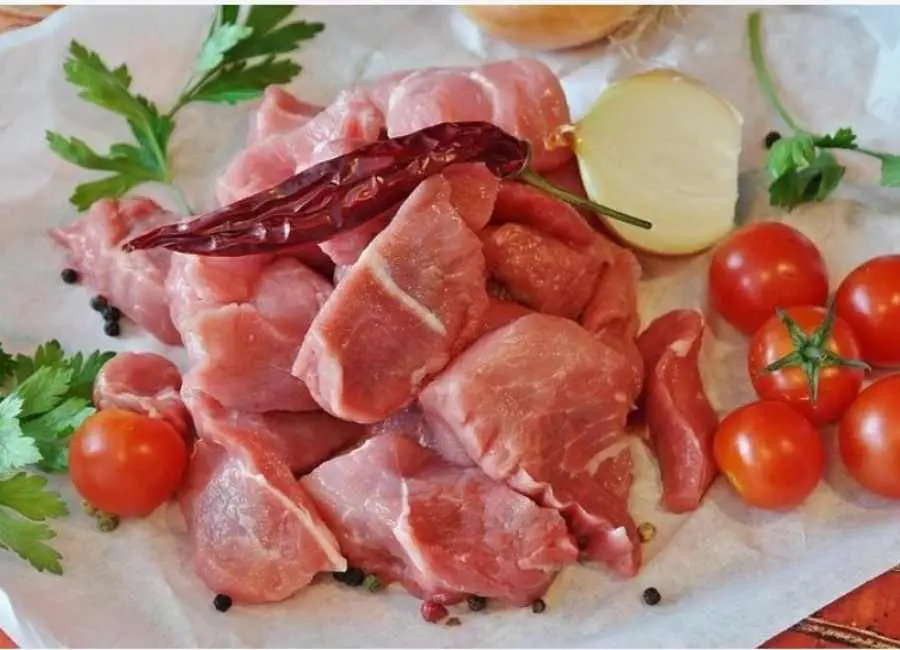
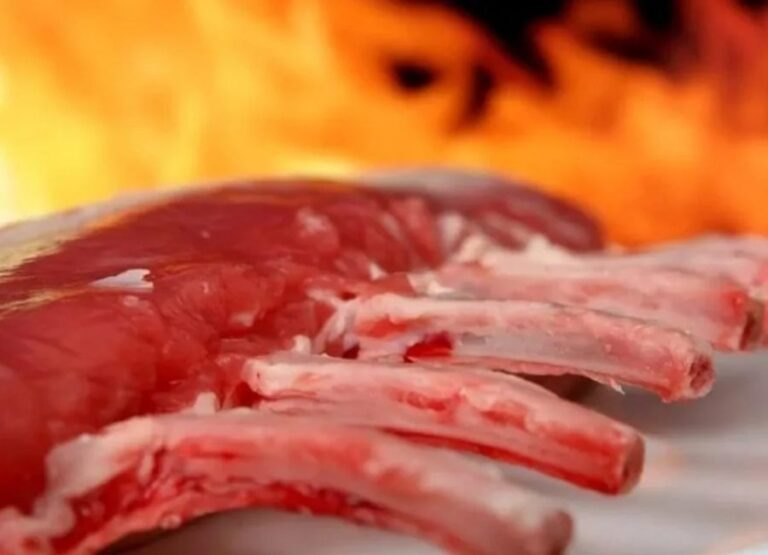
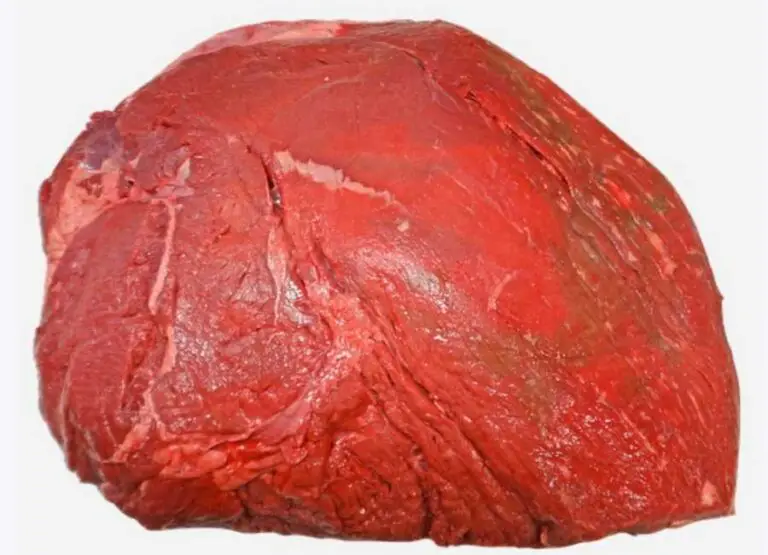
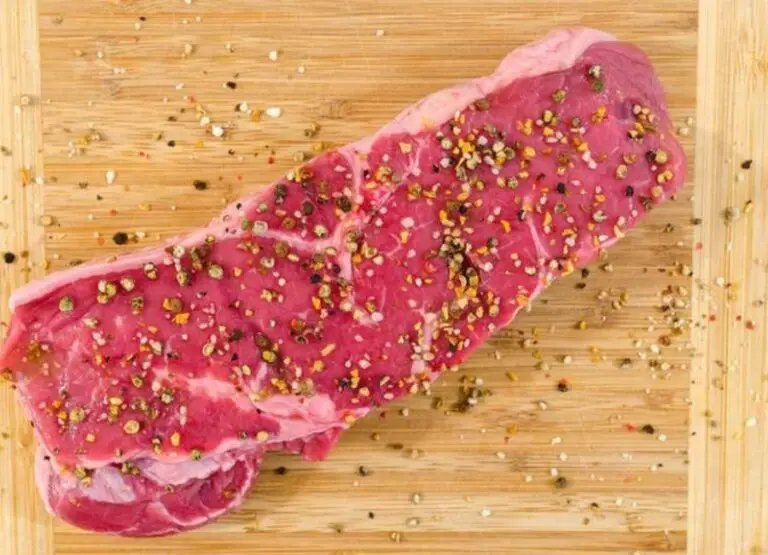
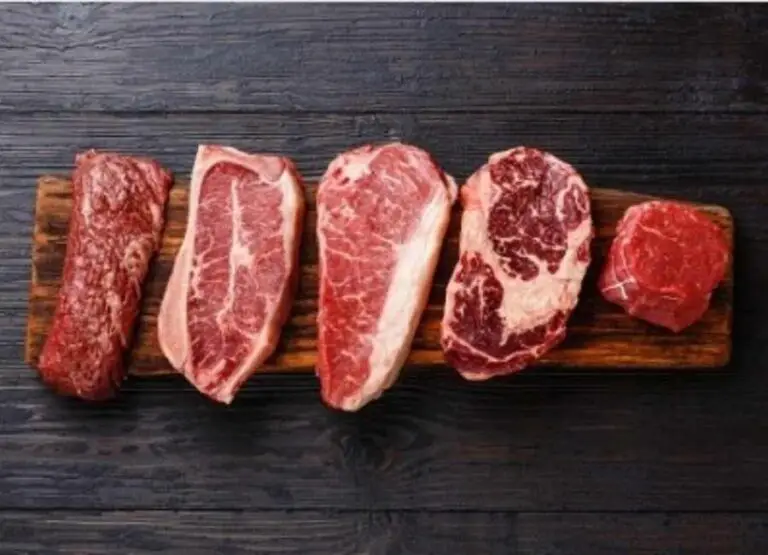
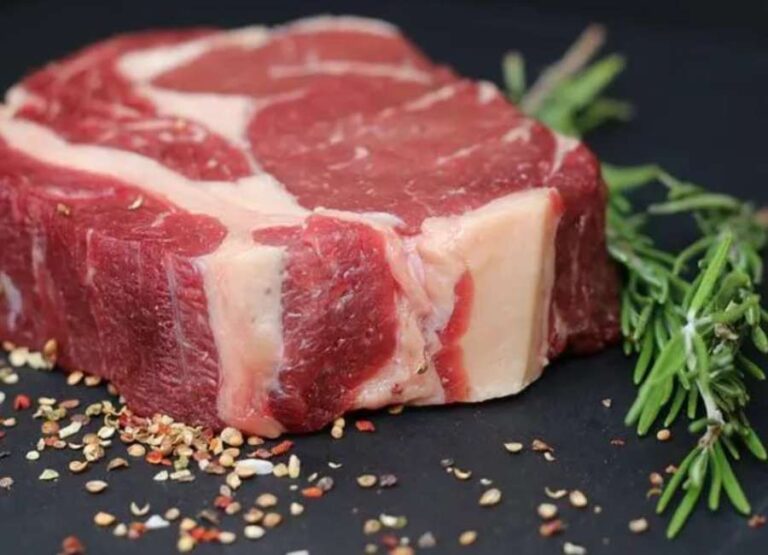
![Why Does Red Meat Give Me Diarrhea [Explained]](https://foodcreeks.com/wp-content/uploads/2023/02/Why-Does-Red-Meat-Give-Me-Diarrhea-768x555.jpg)